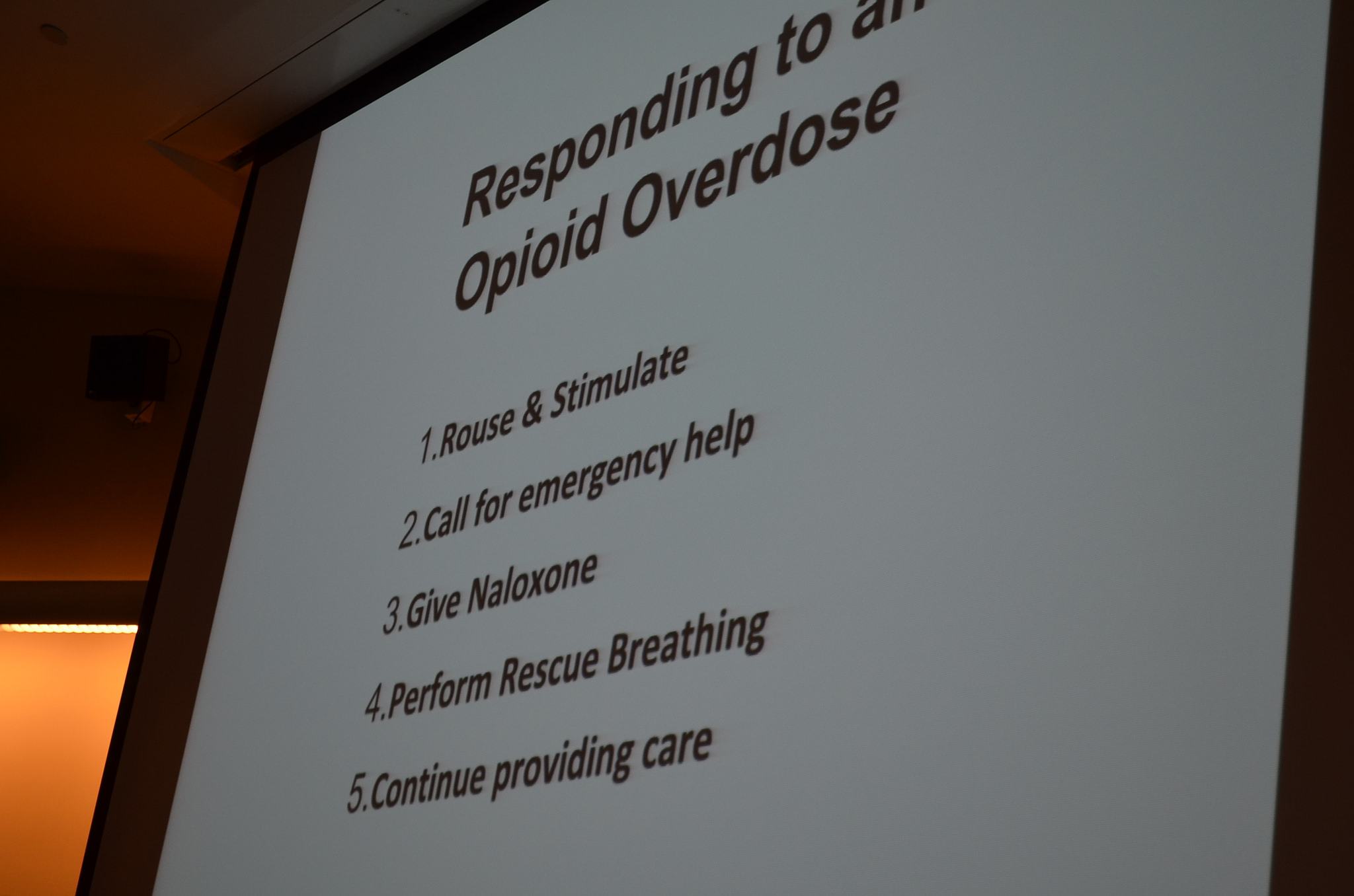By: Meredith Kerr, MSN (Entry Into Nursing) 2018
U.S. Surgeon General Dr. Jerome M. Adams recently urged the public to carry and learn how to use Narcan (naloxone)—a lifesaving opioid overdose reversal drug—in hopes of reducing the number of overdose deaths. Currently the rate is a staggering 115 per day.
Opiate Overdose and Naloxone: Signs of Overdose and How Naloxone Works

Some still view Surgeon General Adams’ harm reductionist stance as controversial, and the U.S. does have a long history of treating substance use disorders from an abstinence-only perspective. But there is no arguing with the facts: opioid overdose education and naloxone distribution programs save lives – there are countless studies on the subject. As the death toll rises, there is no question that we need to expand access to immediate interventions, while simultaneously pursuing advancements in long-term treatment options for those with substance use disorder. Naloxone, though not a cure, is one of the best immediate tools at our disposal.
Dr. Adams called specifically on healthcare professionals to “increase the awareness, possession, and use of naloxone among at-risk populations and broader communities.” Baltimore has been fighting opioid overdose deaths for decades, and was a relatively early adopter of naloxone distribution. Thanks to many strong community coalitions, city Health Commissioner Dr. Leana Wen, and some of Hopkins’ own faculty and students, this city has made a lot of progress. Now you can get naloxone from any stocking pharmacy for a small copay without a prescription, or for free from one of several overdose response programs. Because of alum Demetrius Marcoulides and a partnership with the Baltimore Harm Reduction Coalition, you can also receive free naloxone and overdose training from the Nursing Students for Harm Reduction here on campus.
As an MSN (Entry Into Nursing) student, one of my most rewarding experiences is leading naloxone trainings for nursing, public health, and medical students with the Nursing Students for Harm Reduction. So far, we have trained almost 1,000 Johns Hopkins students on how to recognize and respond to opioid overdose. One of the most common comments we receive is that this training should be required along with CPR and code-response education. In essence, the Surgeon General is now echoing that sentiment. I am optimistic that we will soon see an uptick in nursing schools’ harm reduction curricula, specifically opioid overdose response training, to better prepare future clinicians to deal with the issues at hand.
As current and future nurse leaders, the ANA Code of Ethics requires us to advance the cause of social justice and advocate for the rights of vulnerable populations, including those at risk for opioid overdose. The Surgeon General’s call to action mandates a broad range of clinical interventions including increased screening and referral to treatment, and improving access to naloxone for those who need it most. Though any true solutions need to come from the community, it is important for institutions like Hopkins to support these initiatives. I am proud to be a part of the Johns Hopkins School of Nursing’s efforts to achieve these goals and am inspired by the supportive environment and participation from administration, staff, and students on this critical initiative as we strive for continuous improvement.
If you or your group are interested in a free opioid overdose response and naloxone training, please reach out the Nursing Students for Harm Reduction via Meredith Kerr at [email protected].
Learn More:
- What Is Naloxone and How Does It Stop Opioid Overdoses?
- Solving a Crisis Starts with Curriculum
- Post-Master’s Psychiatric Mental Health Nurse Practitioner Certificate
- Nursing scholar works with coalition to combat this epidemic

ABOUT THE AUTHOR: MEREDITH KERR
Meredith Kerr is a MSN (Entry Into Nursing) student graduating in August 2018. She focuses on substance use disorders and underserved populations in Baltimore, is one of the leaders of the Nursing Students for Harm Reduction, and plans to continue on to earn her DNP with Johns Hopkins School of Nursing.
